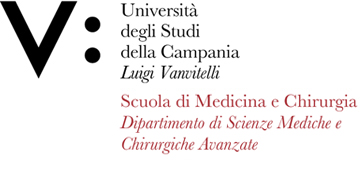Alessandro TESSITORE
Insegnamento di AFP V
Corso di laurea magistrale a ciclo unico in MEDICINA E CHIRURGIA (Sede di Napoli)
Italiano
| Lingua di insegnamento | Inglese |
| Contenuti | Anatomia ed embriologia cranioencefalica e vertebromidollare |
| Testi di riferimento | Greenberg Handbook of Neurosurgery Thieme |
| Obiettivi formativi | Il corso ha lo scopo di introdurre lo studente a: |
| Prerequisiti | Aspetti di semiotica clinica |
| Metodologie didattiche | Il corso si basa sulla partecipazione dello studente alla gestione delle attività di reparto, alla preparazione della seduta chirurgica, al management preoperatorio e al follow up del paziente chirurgico, alle attività chirurgiche ambulatoriali e in sala operatoria, mediante la figura di un tutor che seguirà step-by-step lo studente nel guidare lo stesso in ogni passaggio della sua attività formativa. |
| Metodi di valutazione | Si otterrà la verifica del raggiungimento dei topic formativi mediante analisi dei tutor durante il percorso delle attività professionalizzanti stesse, valutando sia la conoscenza degli argomenti trattati sia la capacità clinica e chirurgica raggiunta dagli studenti a seguito dell’attività stessa. |
| Altre informazioni | Il corso sarà svolto presso l’ Unità Operativa di Neurochirurgia, negli ambulatori chirurgici della stessa nonché nelle sale operatorie dedicate alle sedute di neurochirurgia. |
| Programma del corso | Anatomia ed embriologia cranioencefalica e vertebromidollare |
English
| Teaching language | English |
| Contents | Anatomy and embryology of the brain e spinal cord |
| Textbook and course materials | Greenberg Handbook of Neurosurgery Thieme |
| Course objectives | The course aims to introduce the student to: |
| Prerequisites | During of his previous training, it is essential that the student has already acquired the basics of surgical semeiotics as well as the theoretical notions of the surgery. |
| Teaching methods | The course is based on the student's participation in the management of the department activities, the preparation of the surgical session, the preoperative management and the follow up of the surgical patient, the outpatient surgical operations and the operating room, through the figure of a tutor who will follow step -by-step the student to drive him in every step of his training activity. |
| Evaluation methods | The verification of the achievement of the training topics will be outlined by the tutors during the path of the professional activities themselves, evaluating both the knowledge of the topics covered and the clinical and surgical capacity achieved by the students following the activity itself. |
| Other information | The course will be carried out at the Neurosurgical Unit, as in the surgeries of the same as in the operating theaters dedicated to neurosurgical sessions |
| Course Syllabus | Anatomy and embryology of the brain e spinal cord |








